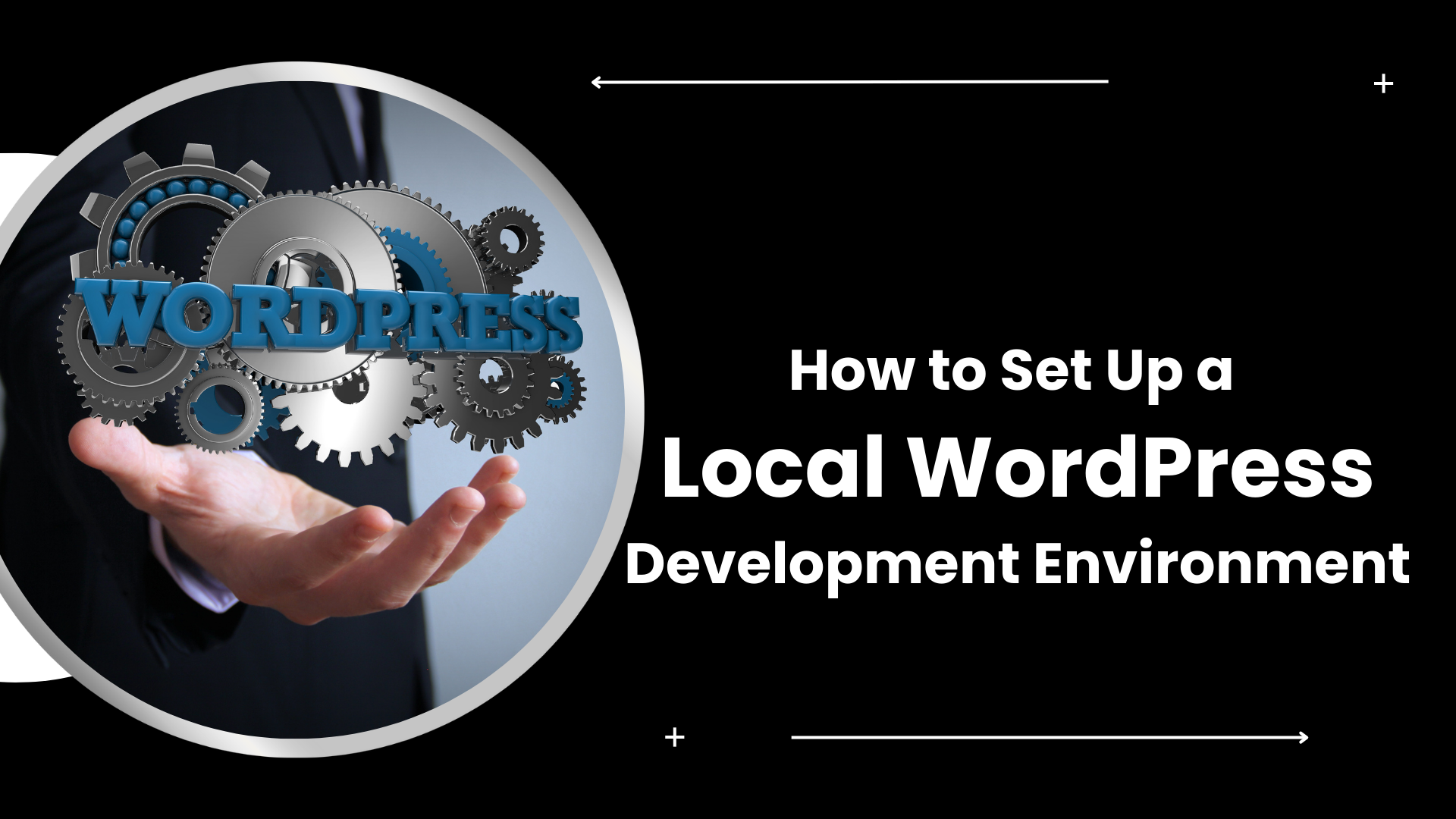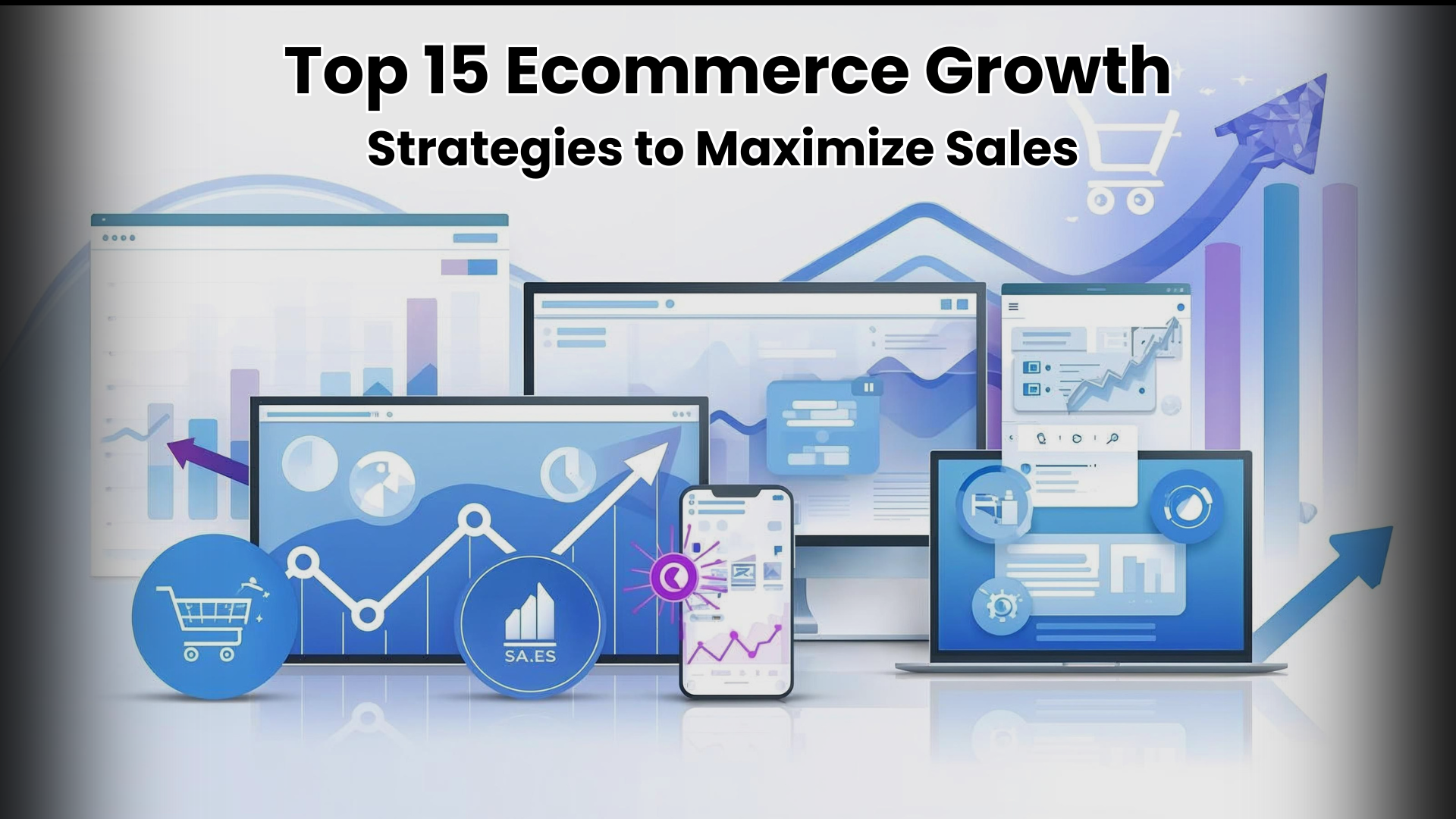- Why Do You Need Modern WordPress eCommerce Plugins?
- Top 10 Best eCommerce Plugins for WordPress
- 1.WooCommerce (Best Overall WordPress eCommerce Plugin)
- 2. Easy Digital Downloads (Best Plugin for Digital Product Stores)
- 3. Ecwid (Best for Multichannel Selling)
- 4. WP EasyCart (Best for Small to Mid-Sized Stores)
- 5. MemberPress (Best for Membership and Subscription Stores)
- 6. BigCommerce for WordPress (Best Plugin for Headless Commerce)
- 7. CartFlows (Best for Checkout Optimization and Funnels)
- 8. WooCommerce Subscriptions (Best for Recurring Billing)
- 9. Dokan (Best Multi-Vendor Marketplace Plugin)
- 10. WPForms (Best for Product Inquiry and Custom Commerce Forms)
- A Detailed Comparison of eCommerce Plugins for WordPress
- How to Choose the WordPress eCommerce Plugins?
- Features to Look For in an eCommerce WordPress Plugin
- Why Choose CSSChopper for Custom eCommerce Plugins Development
If your online store runs on WordPress, one thing remains essential. You need a powerful ecommerce setup that offers flexibility, automation, intelligent workflows, and frictionless shopping experiences.
Whether you are scaling a mid-market ecommerce brand, launching a new SaaS-driven store model, or optimizing a multicategory marketplace, the right WordPress ecommerce plugins will determine how fast you grow.
The evolution of digital commerce is transforming fast. AI adoption, headless storefronts, customer personalization, operational automation, and omnichannel shopping have reshaped how modern online stores are built. Today, WordPress is not just a CMS. It is a modular commerce engine when paired with the right plugin stack.
Selecting the wrong eCommerce plugins can affect speed, conversion rates, inventory sync, product display quality, and checkout performance. Correct choices unlock long-term scalability and revenue predictability.
This guide explores the best WordPress plugins for ecommerce in 2026. It also includes a decision-making framework tailored for CEOs, CTOs, and enterprise leaders. With insights aligned to modern commerce architecture, this guide helps you pick the most future-ready ecommerce WordPress plugins.
Why Do You Need Modern WordPress eCommerce Plugins?
Consumers expect more than standard cart and checkout workflows. They want real-time personalization, product recommendations, mobile-first UI, intelligent product search, and AI-driven support. A powerful plugin stack helps deliver this experience.
Let’s look at the must have WordPress plugins for ecommerce that enterprise brands prioritize for their online store
AI-Powered Shopping Experience
AI-driven search and recommendation engines improve product discovery. Reports show that AI recommendations can increase revenue by up to 26 percent for ecommerce brands. An eCommerce plugin with AI models improves upselling, cross-selling, and user segmentation.
Performance and Speed for SEO
Google’s search systems reward fast-loading and responsive online stores. Heavy plugins impact Core Web Vitals. High-traffic ecommerce websites often use advanced caching, lazy loading, and CDN-backed scripts. This is why leaders hire an eCommerce development company to optimize plugin load times.
Omnichannel Commerce Integration
Shoppers use Instagram, Facebook, WhatsApp, and mobile apps. An ecommerce plugin for WordPress that syncs with these channels enables unified order and inventory management. This supports centralized sales handling across platforms.
Payment Gateway Flexibility
Modern ecommerce operations depend on seamless payment gateway integration. Enterprises running subscription models, multi-currency checkout, or tiered pricing need reliable processing flows.
Inventory Accuracy and Automation
Out-of-stock frustrations cost ecommerce businesses millions each year. Accurate tracking is essential. Many plugins integrate with eCommerce inventory management software to maintain accuracy across marketplaces.
Top 10 Best eCommerce Plugins for WordPress
Below is a research-backed list of the best ecommerce plugins ranked by performance, commerce features, automation readiness, enterprise value, and longevity.
1.WooCommerce (Best Overall WordPress eCommerce Plugin)
WooCommerce remains one of the best WordPress ecommerce solutions for plugins. It powers more than 43.5 percent of all online stores. Brands use it for its large ecosystem, modular scalability, and enterprise-ready extensions.
Key Features
- Flexible product management
- Built-in checkout and cart system
- AI-driven product recommendations
- Extensions for shipping, inventory, and automation
- Seamless API support for advanced integrations
- Works well with headless architecture
Best For
Mid-market stores, online retailers, subscription models, and enterprise ecommerce platforms.
Pricing
- Free core plugin
- Premium extensions start at ~$5 to ~$199 per feature
Why It Stands Out
WooCommerce has the largest add-on ecosystem and strong API support. Ideal for enterprise workflows and future-ready customization.
2. Easy Digital Downloads (Best Plugin for Digital Product Stores)
This WordPress store plugin is perfect for selling software, PDFs, videos, and other digital items that require licensing.
Key Features
Digital license management
Subscription billing
Secure file delivery
Customer account dashboards
Multiple payment integrations
Best For
SaaS tools, digital creators, and membership platforms.
Pricing
Personal: ~$99
Professional: ~$199
All Access: ~$299
Why It Stands Out
It streamlines digital commerce with built-in automation and secure delivery features.
3. Ecwid (Best for Multichannel Selling)
Ecwid integrates seamlessly with WordPress ecommerce plugins and enables multichannel functionalities.
Key Features
- Sync with Amazon, eBay, and Instagram
- Automated shipping rules
- Real-time tax calculation
- Robust mobile storefront
Best For
Businesses that sell across multiple platforms.
Pricing
- Free plan available
- Venture: ~$19
- Business: ~$39
- Unlimited: ~$99
Why It Stands Out
Ideal for brands needing plug-and-play omnichannel selling.
4. WP EasyCart (Best for Small to Mid-Sized Stores)
WP EasyCart simplifies ecommerce for small brands with a built-in admin system.
Key Features
- POS integration
- Coupons and promotions
- Order dashboards
- Product variations
- Social media sync
Best For
Small businesses, restaurants, boutique stores.
Pricing
- Free
- Professional: ~$99
- Premium: ~$199
Why It Stands Out
A complete WP ecommerce plugin suite with minimal setup.
5. MemberPress (Best for Membership and Subscription Stores)
MemberPress offers powerful subscription billing with role-based access.
Key Features
- Paywall creation
- Subscription billing
- API connectivity
- LMS integrations
- GDPR tools
Best For
Communities, LMS platforms, and digital learning stores.
Pricing
- Basic: ~$179
- Plus: ~$299
- Pro: ~$399
Why It Stands Out
Perfect for recurring revenue workflows.
6. BigCommerce for WordPress (Best Plugin for Headless Commerce)
This WordPress shop plugin provides a scalable backend with a fast WordPress frontend.
Key Features
- Headless commerce ready
- Multi-storefront support
- PCI compliance
- Multi-currency pricing
- Enterprise analytics
Best For
High-volume stores and enterprise brands.
Pricing
- Standard: ~$29
- Plus: ~$79
- Pro: ~$299
- Enterprise: Custom
Why It Stands Out
It reduces server load by offloading commerce functionalities to the BigCommerce backend.
7. CartFlows (Best for Checkout Optimization and Funnels)
CartFlows enhances checkout conversions with funnel optimization tools.
Key Features
- One-click upsells
- A/B testing
- Dynamic offers
- Optimized checkout templates
- CRM sync
Best For
DTC brands, digital marketers, and subscription-based online stores.
Pricing
- Standard: ~$99
- Plus: ~$199
- Pro: ~$299
Why It Stands Out
Improves checkout completion rates significantly.
8. WooCommerce Subscriptions (Best for Recurring Billing)
This eCommerce WordPress plugin for WooCommerce is ideal for brands creating subscription revenue cycles.
Key Features
- Automatic renewals
- Free trials
- Proration support
- Billing flexibility
- Deep WooCommerce integration
Best For
Subscription SaaS, subscription boxes, and digital memberships.
Pricing
~$199 per year
Why It Stands Out
Most robust subscription extension for WooCommerce.
9. Dokan (Best Multi-Vendor Marketplace Plugin)
Dokan is perfect for businesses wanting Amazon-style marketplaces.
Key Features
- Vendor dashboards
- Vendor commissions
- Inventory autonomy
- Tax settings
- Vendor withdrawal options
Best For
Marketplace platforms, multi-vendor models, and niche shopping sites.
Pricing
- Starter: ~$149
- Professional: ~$249
- Business: ~$499
Why It Stands Out
It provides the fastest way to launch various multi-vendor eCommerce website features without coding.
10. WPForms (Best for Product Inquiry and Custom Commerce Forms)
WPForms helps capture leads, inquiries, and pre-sales engagement.
Key Features
- Multi-step forms
- Payment forms
- CRM integration
- Conditional logic
- Survey tools
Best For
B2B stores, service-based ecommerce, and custom order workflows.
Pricing
- Basic: ~$49
- Plus: ~$99
- Pro: ~$199
Why It Stands Out
Enhances customer engagement and lead capture.
A Detailed Comparison of eCommerce Plugins for WordPress
This comparison table gives you a quick, data-driven snapshot of the best WordPress ecommerce plugin. It highlights pricing, scalability, API support, multichannel readiness, and subscription capabilities to help decision-makers make informed choices.
| Plugin | Basic Plan | Subscriptions | Multichannel | API Friendly |
| WooCommerce | Free + paid | ✓ | ✓ | ✓ |
| Easy Digital Downloads | ~$99+ | ✓ | Limited | ✓ |
| Ecwid | Free + paid | ✕ | ✓ | ✓ |
| WP EasyCart | Free + paid | ✓ | ✓ | ✓ |
| MemberPress | ~$179+ | ✓ | Limited | ✓ |
| BigCommerce | ~$29+ | ✓ | ✓ | ✓ |
| CartFlows | ~$99+ | ✓ | Limited | ✓ |
| WooCommerce Subscriptions | ~$199 | ✓ | ✕ | ✓ |
| Dokan | ~$149+ | ✕ | ✓ | ✓ |
| WPForms | ~$49+ | Limited | ✕ | ✓ |
How to Choose the WordPress eCommerce Plugins?
Choosing the right WordPress shopping plugin depends on your business model, scalability needs, technical stack, and customer experience goals. This framework helps leaders evaluate plugins based on performance, automation, and long-term growth potential.
| Requirement | Recommended Plugins | Why |
| Subscription businesses | WooCommerce Subscriptions, MemberPress | Best recurring billing flows |
| High-volume enterprise | BigCommerce, WooCommerce | Powerful backend and scaling |
| Marketplace launch | Dokan | Best multi-vendor ecosystem |
| Multichannel selling | Ecwid, WooCommerce | Integrates with social and marketplace channels |
| Digital products | Easy Digital Downloads | Built for digital goods |
| Conversion optimization | CartFlows | Enhances checkout funnel |
Features to Look For in an eCommerce WordPress Plugin
Selecting the best WordPress store plugins requires understanding technical needs, operational workflows, and long-term ecommerce goals that support scalable business growth. It should also follow the latest ecommerce web development trends.
AI Automation
AI-driven search, recommendations, chat support, and personalization enhance user engagement and significantly improve customer retention.
API Connectivity
Knowing what is API Integration helps evaluate system compatibility, data sync reliability, and the plugin’s ability to support complex workflows.
Payment Gateway Flexibility
An ecommerce plugin for website must support global currencies, fraud detection, and seamless processing to ensure a smooth checkout experience across international markets.
Inventory Sync
Integration with eCommerce inventory management software keeps stock accurate, minimizes overselling, and improves operational efficiency.
Headless Capability
Ideal for teams adopting headless eCommerce solutions to achieve faster performance, flexible UI, and omnichannel experience control.
Brand Customization
Ecommerce solutions for WordPress offer complete control over layout, styling, color schemes, and triggers to ensure the store aligns with your brand identity.
Analytics and Reporting
Provides critical insights into customer behavior and conversions to inform better decisions and optimize an eCommerce growth strategy for long-term digital expansion.
Why Choose CSSChopper for Custom eCommerce Plugins Development
CSSChopper has deep expertise in building the best ecommerce plugin for WordPress. The team delivers secure, scalable plugin customization aligned with enterprise workflows. Whether you need advanced automation, scalable APIs, subscription models, or checkout optimization, the team delivers performance-focused results.
Our expertise in eCommerce website development services, custom storefronts, and headless builds positions us as a trusted partner. We ensure every eCommerce solution aligns with your long-term digital roadmap. Our plugin development process focuses on clean code, seamless integrations, and exceptional user experience to help your business scale confidently.
Categories
Recent Posts
Popular Posts
- How to Choose a Reliable Offshore Development Partner?
- Transforming Web Development with HTMX’s Declarative Approach for Dynamic UIs
- Why Your Conversion Funnel Needs a Composable Commerce Solution?
- How to Outsource Web Development in 2025: Complete Guide
- What are the Top Web Development Trends for 2025?




